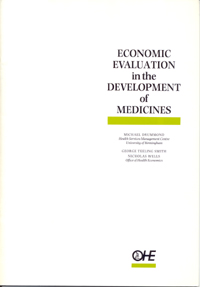Unlocking the Value of Combination Therapies

In most countries the resources available for health care are increasingly stretched in the face of the competing demands for their use. Therefore health care policy makers, planners and managers have begun to scrutinize all health care procedures and treatments more closely, in…
In most countries the resources available for health care are increasingly stretched in the face of the competing demands for their use. Therefore health care policy makers, planners and managers have begun to scrutinize all health care procedures and treatments more closely, in order to ensure that they give good value for money. Medicines have not been exempt from this process and there is increased emphasis on demonstrating additional benefit or social value from new medicines that is commensurate with their costs.
The techniques of economic evaluation are well established as a method of comparing the costs and benefits of health care interventions. A number of evaluations of medicines have been undertaken and have contributed to the debate about their adoption within the health care system.
Nevertheless, many issues remain unresolved. What steps should be taken to generate more high quality evidence on the costs and benefits of medicines? How should such evidence be interpreted and used by health care decision makers? What methodological uncertainties remain and how are these likely to be resolved in the future?
This booklet is therefore for decision makers both within and outside the pharmaceutical industry. Written in a nontechnical manner, it outlines the importance of economic evaluation of medicines, the achievements to date and the potential for the future.
Economic Evaluation and Develop Medicines in the Development of Medicines
Drummond, M.F., Teeling Smith, G. and Wells, N.
(1988) Economic Evaluation and Develop Medicines in the Development of Medicines. OHE Monograph. Available from https://www.ohe.org/publications/economic-evaluation-and-develop-medicines-development-medicines/